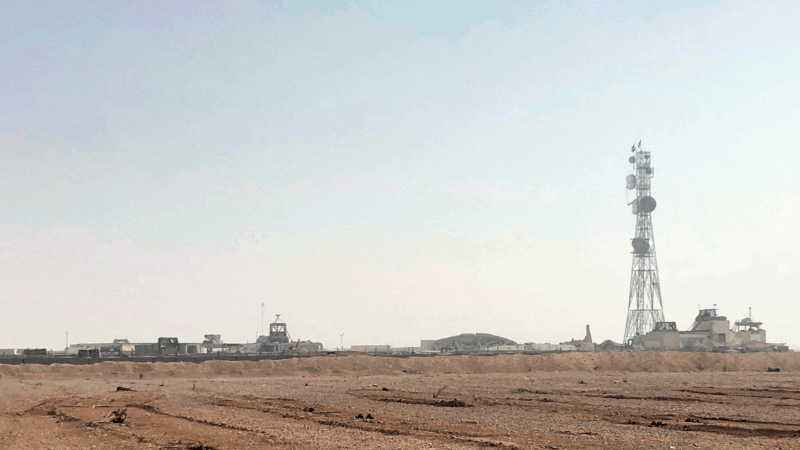C-FISH Program Aims to Help Charter Boats Rebound
Salt water fishing is a $226 million a year business in Alabama. But the industry took a serious blow after last year’s Deep Water Horizon oil spill. As the 2011 fishing season kicks off this month, many charter boat captains aren’t sure how they’ll fare. WBHM’s Brigid Galloway reports some of them are pinning their hopes on a new educational program called C-Fish.
Just across the bay from Mobile, 25 men and women take their seats in a large, bright classroom at the Dauphin Island Sea Lab. Most are charter boat captains and deck hands. They typically spend their days chasing after schools of Red Snapper. But today, they’ve abandoned ship to learn about sustainable fishing practices. It’s a program called Certified Fishers in Sustainable Harvest, or C-FISH. Among the students is Tracey Redding. She owns AAA Charters and books fishing trips for nearly one hundred charter boats along the Alabama Gulf Coast.
“My business was pretty strong up until April of last year. I averaged in the summer 11,000 minutes a month on my cell phone, so it was a very hectic time. We went from that level to maybe two or three calls a month about fishing. so the business really turned off like a faucet once the oil spill and so far I haven’t seen it recover yet.”
Redding believes C-FISH is a good first step to help charter boat fishermen rebuild their businesses. The curriculum includes monitoring fish mortality, catch limits and reef maintenance. In the weeks to come, participants will be evaluated on their boats. They’ll have to demonstrate how what they learned here in the classroom is being put into practice with their customers. Only then can they fly the official C-FISH flag. Nature tourism specialist Joanne McDonough says it’s a way for some charter boats to get a leg up on the competition.
“C-FISH is for a whole new generation of charter fishing professionals.”
McDonough helped develop C-FISH with Orange Beach charter captains and deck hands, Dauphin Island Sea Lab experts and others.
“Here’s a tremendous opportunity for us to educate the charter captains and deck hands with scientific integrity and they can use that information and deliver it to the public at large.’
Last year, before the oil spill occurred, the local tourism bureau surveyed charter boat customers. They asked them to name the most important aspect of a charter fishing trip. It wasn’t how many fish they caught. Or even the price. The number one factor in client satisfaction was the knowledge and courtesy of the captain and crew.
Ben Fairey hopes he can bank on that. Fairey has fished the Gulf professionally for 38 years. These days, when not at the helm of his 62-foot charter boat The Necessity, he’s an outspoken advocate for Gulf Coast fisheries.
“We’ve all learned a valuable lesson from the unfortunate Deep Water Horizon incident that the Gulf of Mexico is a national treasure. We want to provide better customer service, let the fishing experience be educational for our customers and the training we’re gonna receive is going to help us develop those skills.”
As the day’s program concludes, Fairey and the other attendees make a commitment to the sustainable development of Gulf Charter Fishing. And as the season opens this month, they hope their new training will help keep their boats afloat on the Gulf.
~ Brigid Eslkin Galloway, March 11, 2011
Epstein files fallout takes down elite figures in Europe, while U.S. reckoning is muted
Unlike in Europe, officials in the U.S. with ties to Epstein have largely held their positions of power.
Four people on NASA’S Crew-12 arrive at the International Space Station
The crew will spend the next eight months conducting experiments to prepare for human exploration beyond Earth's orbit.
American speedskater Jordan Stolz wins second Olympic gold with 500-meter race victory
With the win, Stolz joins Eric Heiden as the only skaters to take gold in both the 500 and 1,000 at the same Olympics.
US military reports a series of airstrikes against Islamic State targets in Syria
The U.S. military says the strikes were carried out in retaliation of the December ambush that killed two U.S. soldiers and one American civilian interpreter.
5 European nations say Alexei Navalny was poisoned and blame the Kremlin
In a joint statement, the foreign ministries of the U.K., France, Germany, Sweden and the Netherlands say Navalny was poisoned by Russia with a lethal toxin derived from the skin of poison dart frogs.
It’s a dangerous complication of pregnancy — but a new drug holds promise
Researchers celebrate early results of a drug that may become the first treatment for a serious complication of pregnancy called preeclampsia. It's got the potential to save many lives.






